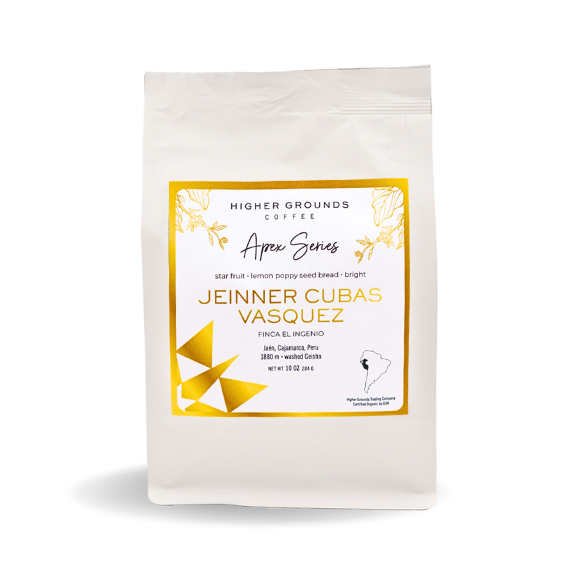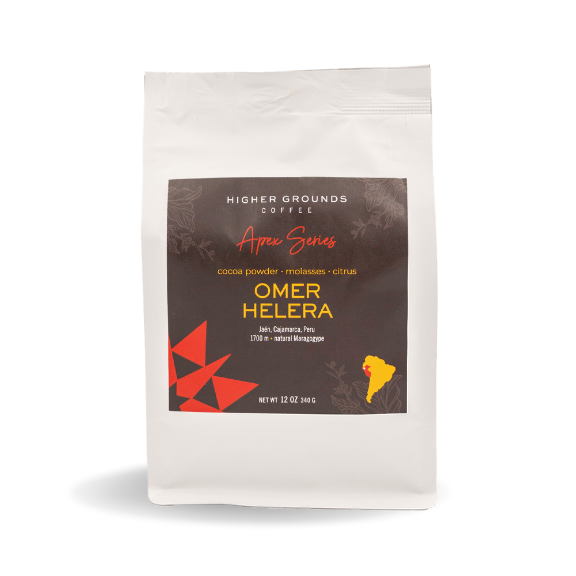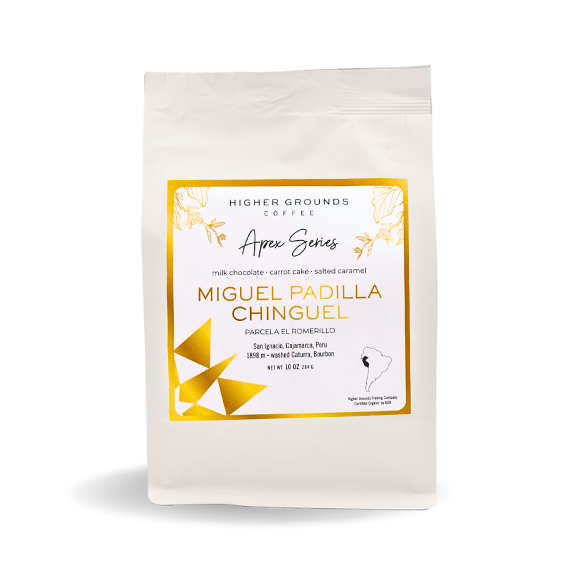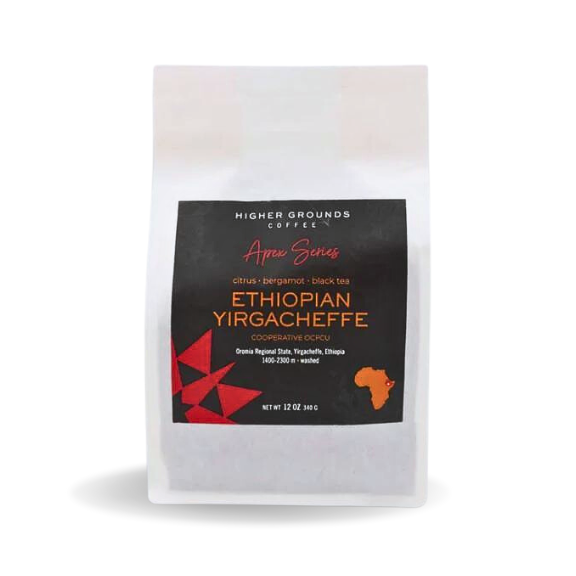Peru Apex: Homer Gayoso Microlot, Organic
Higher Grounds Coffee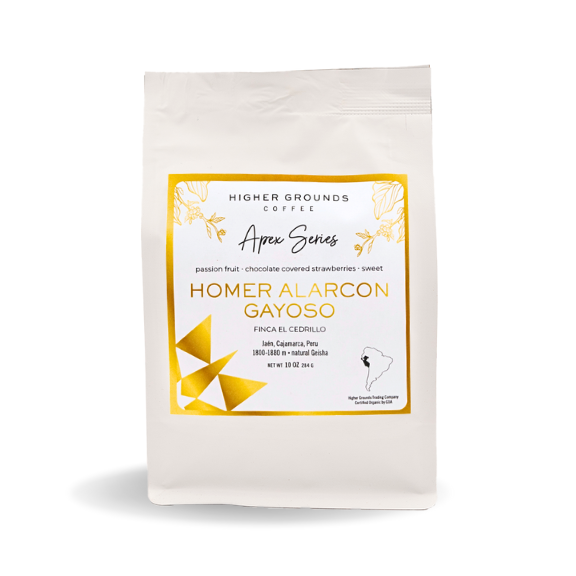


Passion Fruit • Chocolate Covered Strawberries • Sweet
Homer's coffee is being sold in 10 oz bags as part of our Gold Label Apex Series. We only received one burlap bag of these green beans, so get it before it's gone.
Homer’s natural-processed Geisha is back for another round in our Gold Label Apex Series—and this year’s lot might be the most well-rounded yet. While still loaded with fruit-forward flair, this offering layers rich chocolate and sticky toffee sweetness alongside the expected berry and tropical notes. The result is a dynamic cup that balances depth and brightness with buttery body and bold character.
We’ve been sourcing Homer’s coffee for several seasons now, and it’s consistently stood out as one of the most memorable offerings we release. This year is no exception. Compared to Jeinner’s citrus-driven washed Geisha (also available now), Homer’s natural process delivers a funkier, more indulgent profile—perfect for those who love sweet, fermented, and fruit-saturated coffees. If you're a fan of experimental flavor, this is your must-try.
|
Cooperative: Sol y Cafe Location: Cajamarca - Peru Roast level: light/Medium Body: Buttery Gesha is a highly prized coffee variety known for producing delicate, complex flavor nuances, distinct floral aromatics, and profound sweetness in the cup. As a plant, it is tricky to grow well, only thrives at very high elevations, and it only yields about half the fruit compared to most other coffee varieties. For these reasons, producers like Homer can earn a premium price for gesha coffees, and we believe they are well worth it. Homer chose to process this particular crop as a natural, leaving the fruit intact throughout fermentation and drying, resulting in a lush, vibrantly fruity cup that we can't stop raving about. |

Homer Alarcon started working on his own coffee farm in 2003. He started working without any plan or any technology. He says that he had no idea about costs or the fertilization process. He worked like that until 2008. In that year, he became a member of the Cooperative Sol&Café, and he started getting training in a new way to produce coffee. Homer remarks that Sol&Café taught him to see the coffee farm as a company that needed to work with new technologies and new trends, rather than viewing the farm only as a simple plot of land to survive.
In 2017 a new coffee trend started in Perú: specialty coffee. With the new championship of Cup of Excellence, all farmers had the opportunity to try new experiments and work with new varieties of coffee. Homer Alarcon jumped on the train of experimentation. For many years, he had primarily been working with washed coffees. This kind of process is the most common in Perú. However, Homer was curious about the natural process- specifically the quality, the flavors, the process of fermentation and the time needed to produce this kind of coffee.
_________
Quality is fundamental to Higher Grounds' mission, and our Apex Series exemplifies this commitment best. Holding up our Apex coffees is our opportunity to hold up the farmers as well. While roasters relish the opportunity to showcase their skills by roasting and cupping these unique and exquisite coffees, the true mission of the Apex Series lies in honoring our Farmer Partners. Each bag prominently features the names of our Farmer Partners, highlighting our responsibility and privilege to elevate these artisans. Their expertise, often honed over multiple generations, is crucial to the exceptional coffee we produce together. Every cup is as much their creation as it is ours.


